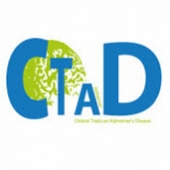CONFERENCE COVERAGE SERIES
Clinical Trials on Alzheimer's Disease 2017
Boston, Massachusetts
01 – 04 November 2017

Held in Boston’s Park Plaza Hotel, this year’s CTAD conference filled its chosen venue to fire regulation capacity. The space bustled with scientists heading to talks, posters, and various private meetings in rooms up and down the hallways. Despite a notable absence of success stories for large trials, a sense of optimism pervaded the scene, which stands in marked contrast to a public perception of all-failure-all-the-time in Alzheimer disease trials. True, verubecestat data was flat-out negative in mild to moderate AD and some scientists began to fret about a possible class effect, but on the other hand, several anti-Aβ antibodies posted evidence of removing amyloid plaque reasonably safely from the human brain, and all breaks were off on prep work for multiple large-scale prevention trials in the preclinical phase of this long disease. CTAD news ran the gamut from creative approaches to developing drugs (think young men’s plasma fraction) to creative approaches to measuring subtle cognitive change (think burst mobile tests and digital pen), to on-the-spot ApoE genotyping (think cube). Learn the latest with our 13-part news series.
10th CTAD: Finally, Alzheimer’s Field Is Serious About Prevention Trials
Alzheimer’s science has undergone a paradigm shift toward the disease’s silent phase. For trials, this means change at every level: new participants, new screening tools, new outcome measurements. What’s the progress?
At CTAD, Tau PET Emerges as Favored Outcome Biomarker for Trials
Tau’s apparent lockstep with cognitive decline dominated the PET conversation. Piramal flaunted data, and Merck/Cerveau are close behind. A first stab at imaging synapses in the hippocampus drew notice, too.
Automated CSF Tests: Check. Blood Tests: In the Works
Clinical validation is showing automated Elecsys, Lumipulse assays to be reliable and predictive. The story on blood tests has turned from non-starter to intensely promising for broad-based screening.
Cognitive Testing Is Getting Faster and Better
Who doesn’t dread hours of testing at a clinic? Innovation needed! Learn about frequent “burst” testing via mobile app, and a digital pen that captures more information than the old paper-and-pencil test.
Don’t Be an Enrollment Loser: Throw Your Own Swab-a-Palooza!
Recruitment, recruitment, recruitment: Registries get creative in how they promote research engagement and fill prevention trials.
Verubecestat Negative Trial Data: What Does it Mean for BACE Inhibition?
Presented at CTAD, BACE inhibitor’s efficacy and safety results in mild to moderate AD were encouraging to some clinicians, vaguely disquieting to others.
High-Dose Gantenerumab Lowers Plaque Load
Gradually raising the dose of this therapeutic antibody appears to ease the risk of brain inflammation.
Pimavanserin Trial Raises Hope for Treating Dementia-Related Psychosis
In a Phase 2 trial in nursing home residents with Alzheimer’s, this new drug mitigated symptoms safely, without detriment to cognition.
Blood, the Secret Sauce? Focus on Plasma Promises AD Treatment
Phase 1 trial tests the rejuvenating effects of young blood, while albumin replacement may offer its own benefits.
Elusive or Not, Aβ Oligomers Are in BioPharma Crosshairs
Ephemeral as they may be, these maligned peptides have become the targets of small-molecule and immunotherapies. Initial results of these efforts to catch and remove Aβ oligomers are trickling in.
In the Running: Trial Results from CTAD Conference
Besides the big-gun antibodies and BACE inhibitors, smaller, lesser-known drug programs are inching their way through the clinical trials pipeline. As is often the case, Phase 1 seems encouraging.
At Least We Know These Don’t Work: Negative Trials at CTAD
Null results ended the development of the neuroprotective drugs edonerpic and abeotaxane, the AMPA receptor modulator S47445, and the dietary formulation tricaprilin.
No Negativity, Please. Clinical Trial Leader Urges Focus on Learning, Progress
At recent CTAD conference, Rachelle Doody called on her colleagues to learn from failures and work together to support better drug evaluation studies.
